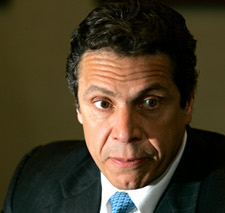
Analysis: Is secretive Albany really getting it?

AP070410033933_0.jpg
It would be easy to view this past week of accusations of sexual harassment and a cover-up as a return to Albany’s bad old days.
It’s ugly, for sure: allegations of more groping of young women staffers, a secret deal using taxpayers’ money, less than forthright statements from more politicians. It’s the kind of stuff for which Albany has been known for decades.
But so far, there are some potentially important differences.
Leave a Comment
Leave a Comment

